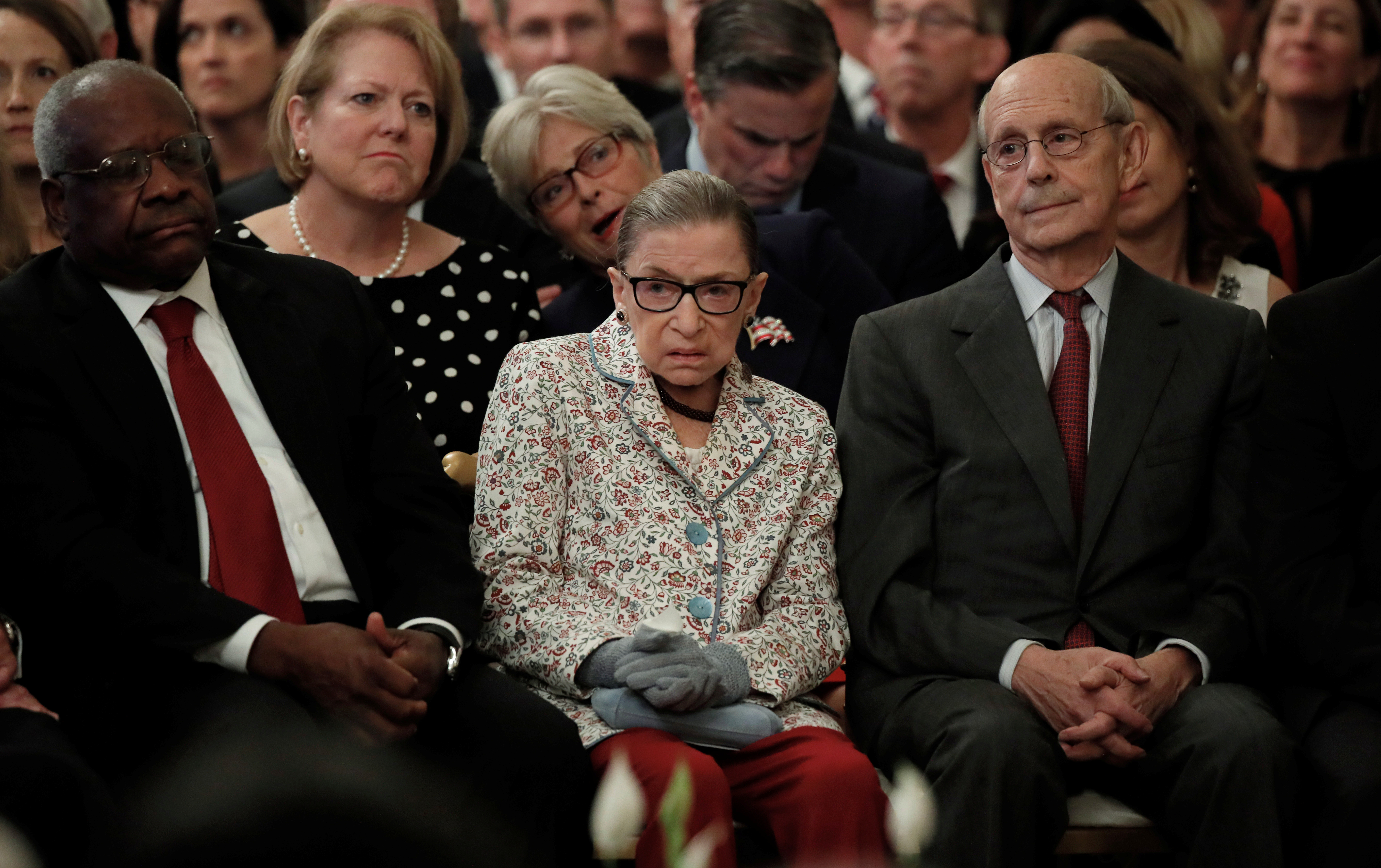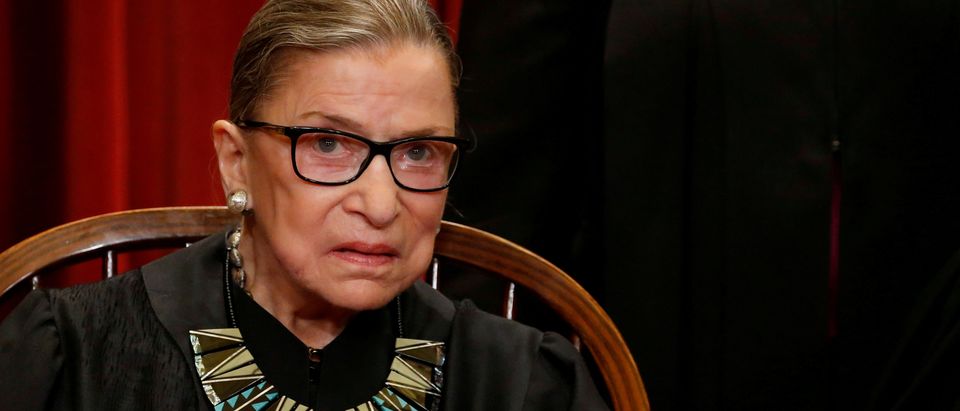U.S. Supreme Court Justice Ruth Bader Ginsburg said a woman who decides to have an abortion “is not a ‘mother,'” citing her “constitutionally protected right to terminate a pregnancy.”
Ginsburg contested Supreme Court Justice Clarence Thomas’s use of the word “mother” in a footnote in the Supreme Court case of Box v. Planned Parenthood of Indiana and Kentucky, Inc. by saying pregnant women who choose to terminate their pregnancies are not mothers.
“A woman who exercises her constitutionally protected right to terminate a pregnancy is not a ‘mother’; the cost of, and trauma potentially induced by, a post-procedure requirement may well constitute an undue burden,” she wrote in a footnote.
The Supreme Court decided Tuesday to uphold an Indiana measure requiring abortion clinics to cremate or bury the remains of aborted babies. However, the justices declined to move forward with the second provision of the Indiana law that banned discriminatory abortions.
These provisions were instated by Vice President Mike Pence when he served as governor of Indiana, but the 7th U.S. Circuit Court of Appeals determined both provisions unlawful.
Ginsburg’s footnote followed her opinion that she would “deny Indiana’s petition in its entirety.”
While she did not approve of the Court’s decision to restore rules regarding cremating and burying fetal remains, she approved of denying review of the Indiana law that banned abortions on the basis of sex, race or disability. (RELATED: Supreme Court Strikes Compromise To Dodge Abortion Dispute)
“It is ‘a waste of the court’s resources’ to take up a case simply to say we are bound by a party’s ‘strategic litigation choice’ to invoke rational-basis review alone, but ‘everything might be different’ under the close review instructed by the Court’s precedent … ” Ginsburg said Tuesday. “I would therefore deny Indiana’s petition in its entirety.”
The justice also responded to Thomas’s discussion of abortion as a tool of modern-day eugenics, saying his argument “displays more heat than light.”
Thomas said “this law and other laws like it promote a State’s compelling interest in preventing abortion from becoming a tool of modern-day eugenics.”
He had also included discussion of Planned Parenthood founder Margaret Sanger’s recognition of “the eugenic potential of her cause,” and her statement that birth control “opens the way to the eugenist.”

U.S. Supreme Court Associate Justices (L-R) Clarence Thomas, Ruth Bader Ginsburg and Stephen Breyer watch from the front row as Brett Kavanaugh takes his ceremonial oath of office. October 8, 2018. REUTERS/Jim Bourg.
Ginsburg commented on the history of eugenics and abortion in a 2009 interview with The New York Times while discussing the 1980 Supreme Court case of Harris v. McRae in which the Court upheld the Hyde Amendment, which blocks the use of Medicaid for abortions.
Ginsburg mentioned when Roe v. Wade was initially decided, she understood there was concern about population growth in populations “that we don’t want to have too many of.”
“Frankly I had thought that at the time Roe was decided, there was concern about population growth and particularly growth in populations that we don’t want to have too many of,” Ginsburg said.
“So that Roe was going to be then set up for Medicaid funding for abortion. Which some people felt would risk coercing women into having abortions when they didn’t really want them. But when the court decided McRae, the case came out the other way. And then I realized that my perception of it had been altogether wrong.”
Follow Mary Margaret on Twitter.
All content created by the Daily Caller News Foundation, an independent and nonpartisan newswire service, is available without charge to any legitimate news publisher that can provide a large audience. All republished articles must include our logo, our reporter’s byline and their DCNF affiliation. For any questions about our guidelines or partnering with us, please contact licensing@dailycallernewsfoundation.org.


